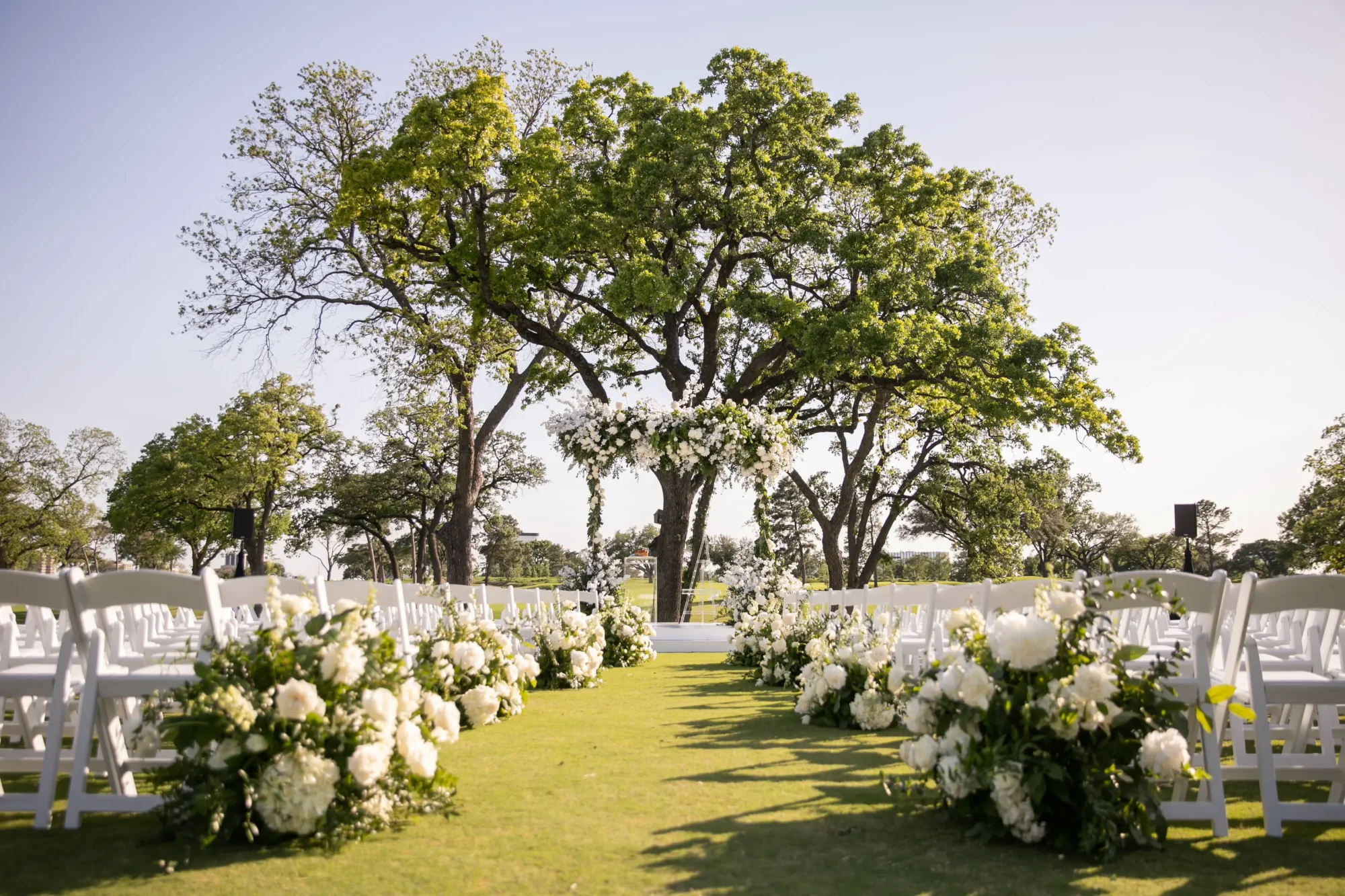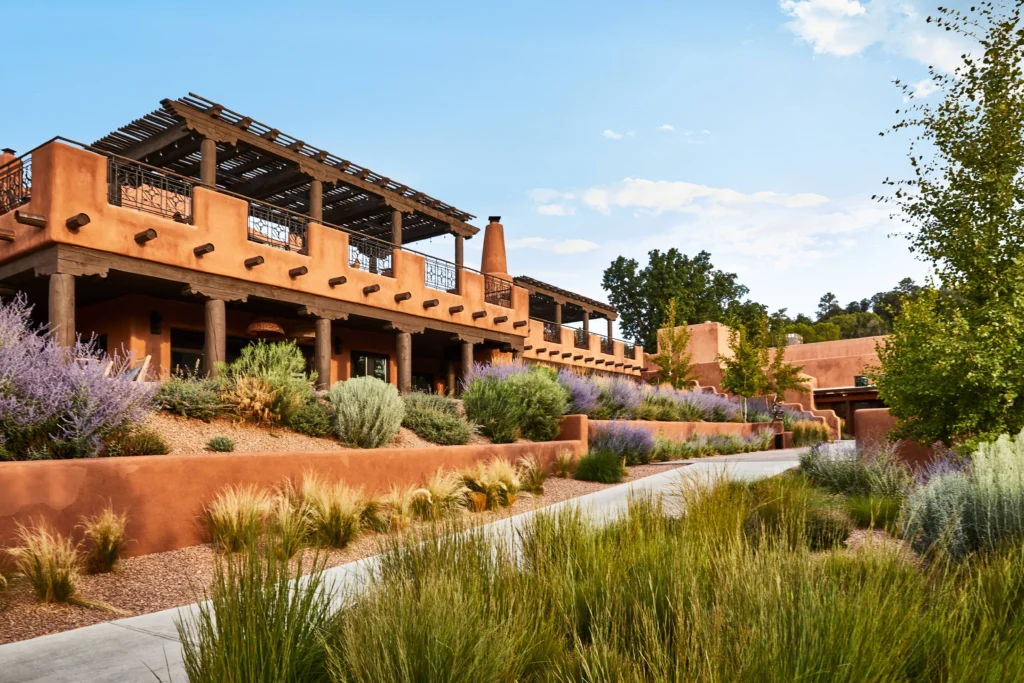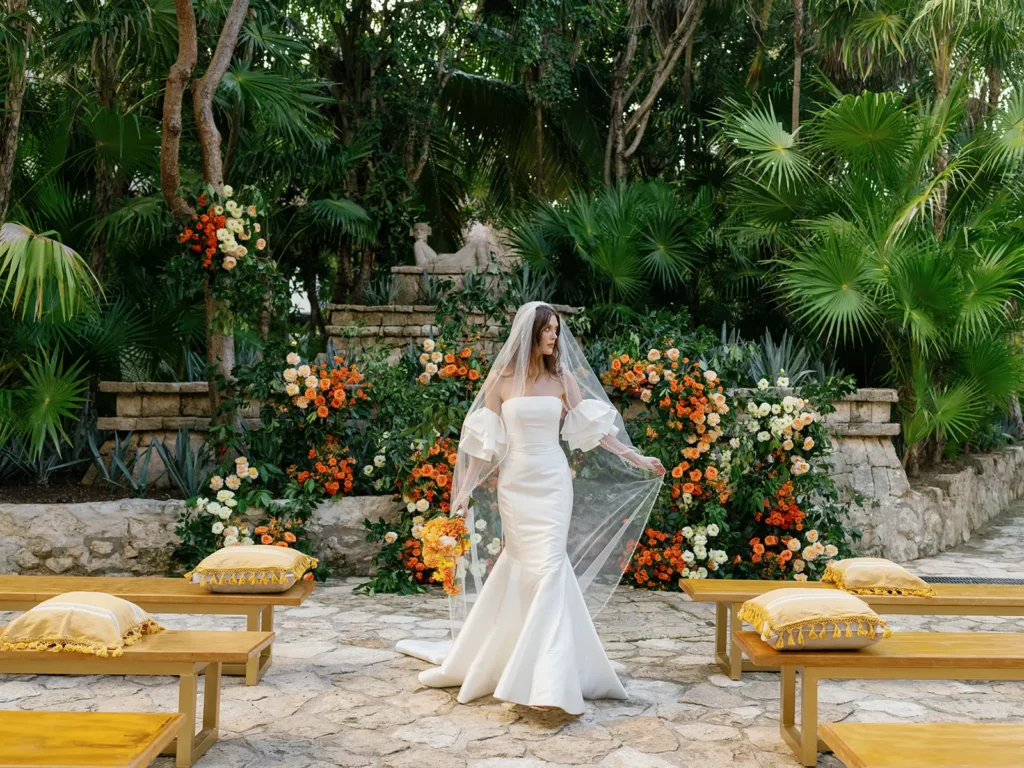Written by Noy Peleg of Riviera Kosher Luxury Cuisine and Events in Mexico, edited by Renée Strauss, Co-Founder of Wedaways.
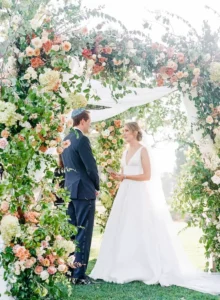
Understanding Orthodox Jewish Weddings
Jewish wedding traditions, especially within Orthodox Judaism, are profound expressions of faith and heritage. Orthodox Jewish weddings embody these traditions, serving as a sacred covenant between God and the people of Israel. Every element of the ceremony emphasizes the holiness of the union between a man and a woman.
The Significance of Marriage in Orthodox Jewish Weddings
In Orthodox Jewish weddings, marriage is a sacred duty that fulfills the Divine Plan. The union between a man and a woman brings blessings, happiness, and fulfillment to their lives. This belief underscores Jewish wedding traditions’ deep spiritual significance within Orthodox ceremonies.
The Symbolism of the Chuppah in Jewish Wedding Traditions
One of the most iconic elements of Jewish wedding traditions is the Chuppah, a canopy under which the couple stands during the ceremony. The Chuppah symbolizes the new home the couple will build together, rooted in Jewish values and traditions. It represents their commitment to creating a life filled with faith and love.
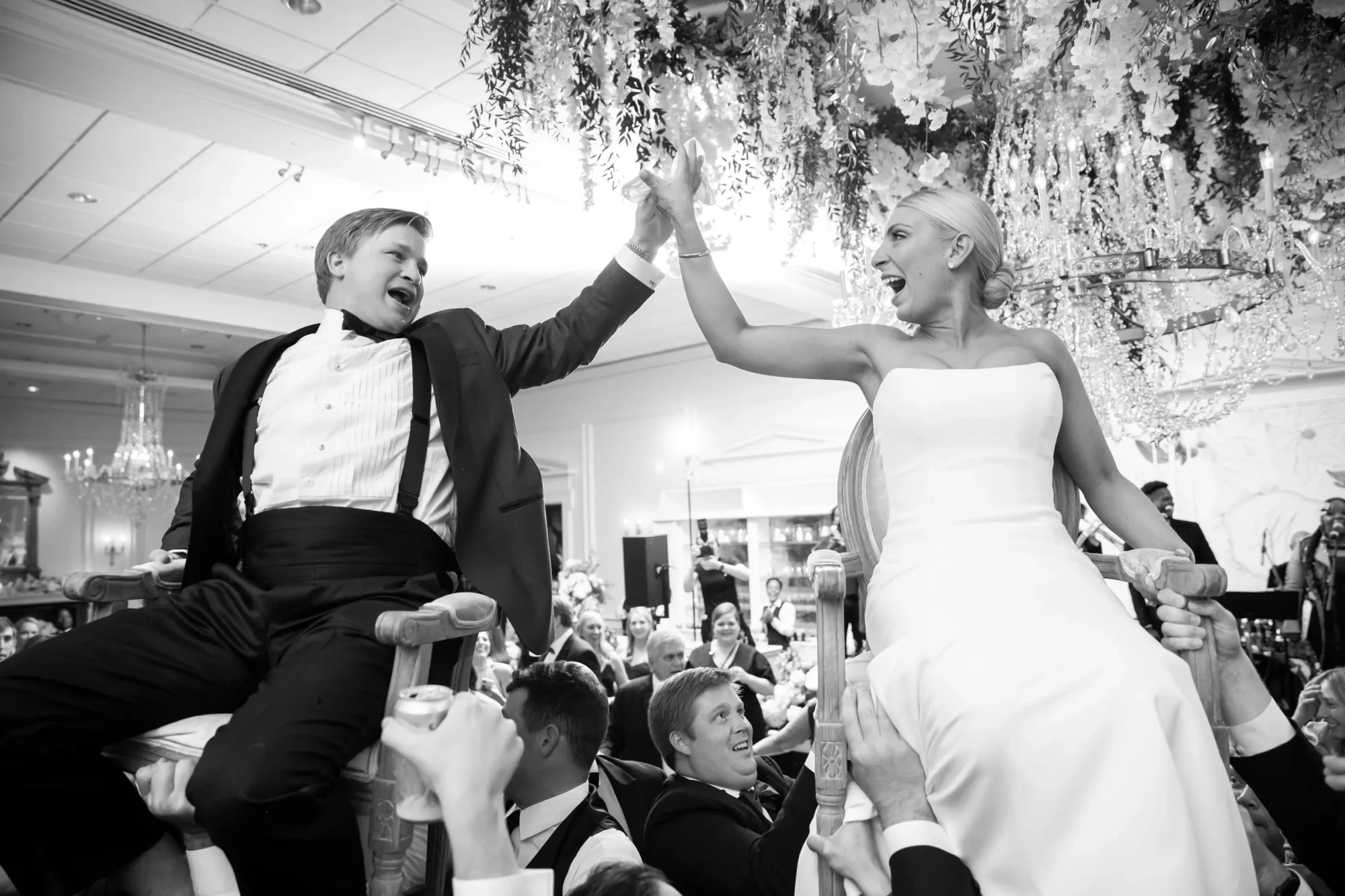
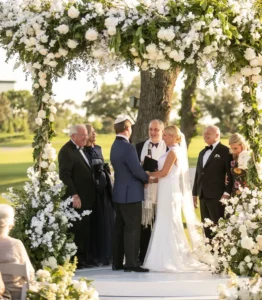
Who Conducts an Orthodox Jewish Wedding?
A key figure in Orthodox Jewish weddings is the Rabbi. A Rabbi is a qualified scholar and religious leader who conducts the marriage ceremony. The Rabbi’s role is crucial as he guides the couple through the rituals and ensures the ceremony adheres to Jewish traditions and laws.
The Roots of Jewish Wedding Traditions
The Torah, the sacred text of Judaism, provides the origins of Jewish wedding traditions. The Torah highlights that God blesses the union of a man and a woman and must be honored and respected. This union is intended to be pure and holy, bringing goodness and joy into the couple’s lives.
The Ketubah: A Contract for Life
During Orthodox Jewish weddings, the Rabbi oversees the signing of the Ketubah, the Jewish marriage contract. The Ketubah outlines the groom’s responsibilities to his bride, including provisions for her well-being and care. As part of the ceremony, the bride and groom share a cup of wine, symbolizing their unity.
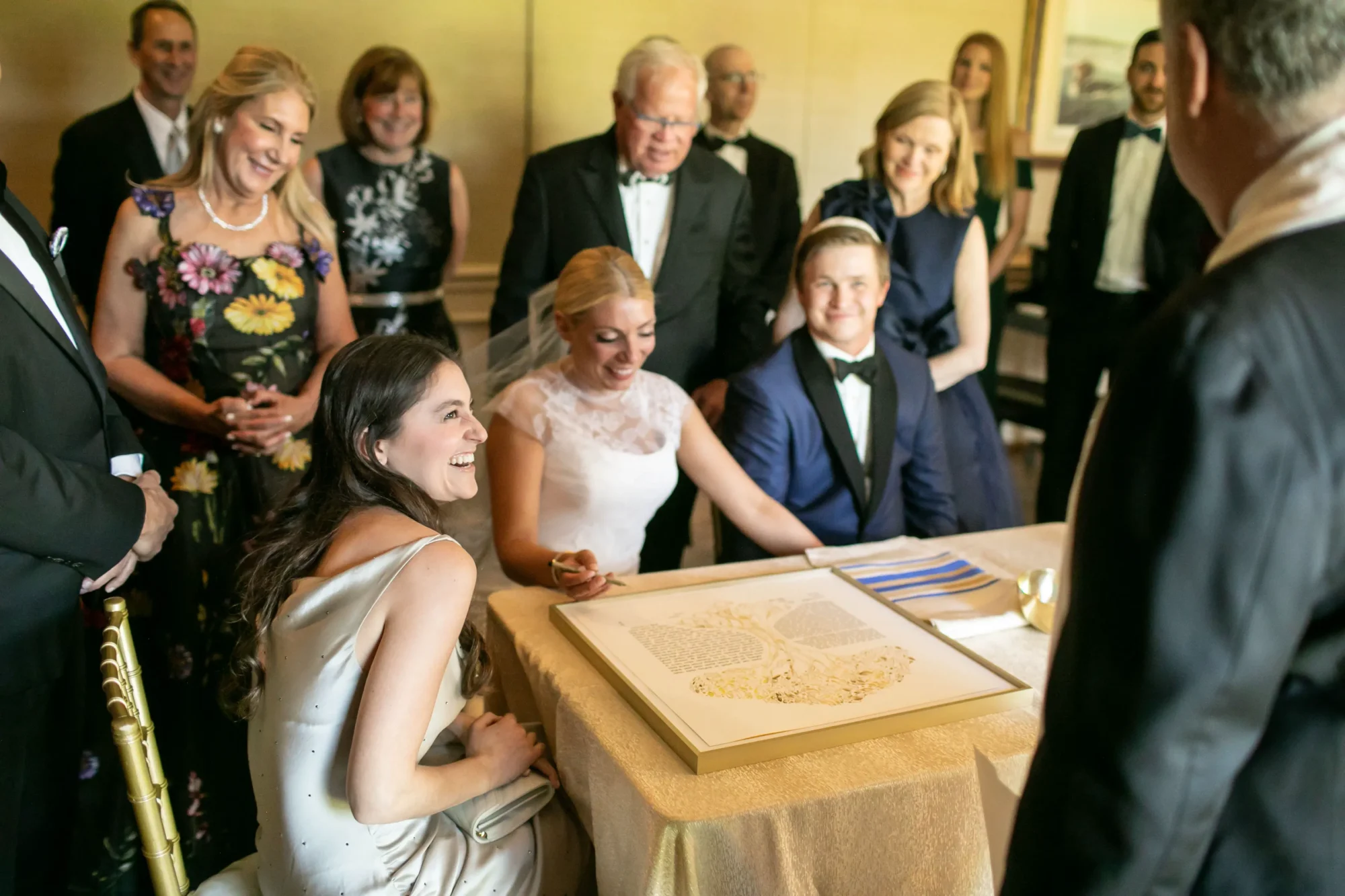
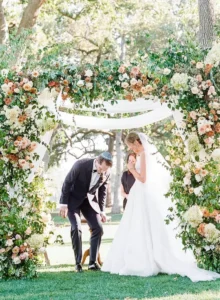
The Breaking of the Glass: A Moment of Reflection in Jewish Wedding Traditions
The groom breaks a glass during one of the most poignant moments in Jewish wedding traditions. This act reminds us of the fragility of life and the world and expresses the couple’s hope for peace and unity. After the glass breaks, guests joyfully shout “Mazal Tov,” marking the beginning of the celebration.
The Joyful Feast: A Meal of Celebration in Orthodox Jewish Weddings
The wedding feast in Orthodox Jewish weddings is a significant and joyous occasion. This lavish meal symbolizes the happiness and joy of the couple and their families. It also highlights the important role of food in Jewish wedding traditions, serving as a time for communal celebration and gratitude.
Jewish weddings often adhere strictly to religious customs and traditions, and the meal is no exception. To meet Jewish dietary laws, the food must be kosher and prepared under strict rabbinical supervision. This adherence to kosher practices reflects the couple’s commitment to upholding Jewish wedding traditions even during the celebration.
The meal typically begins with a blessing over bread or challah, followed by various appetizers. The main course usually includes meat dishes, such as brisket or chicken, and a selection of vegetable dishes and sometimes fish. Desserts often feature a variety of pastries and cakes, rounding out the festive meal with a sweet note.
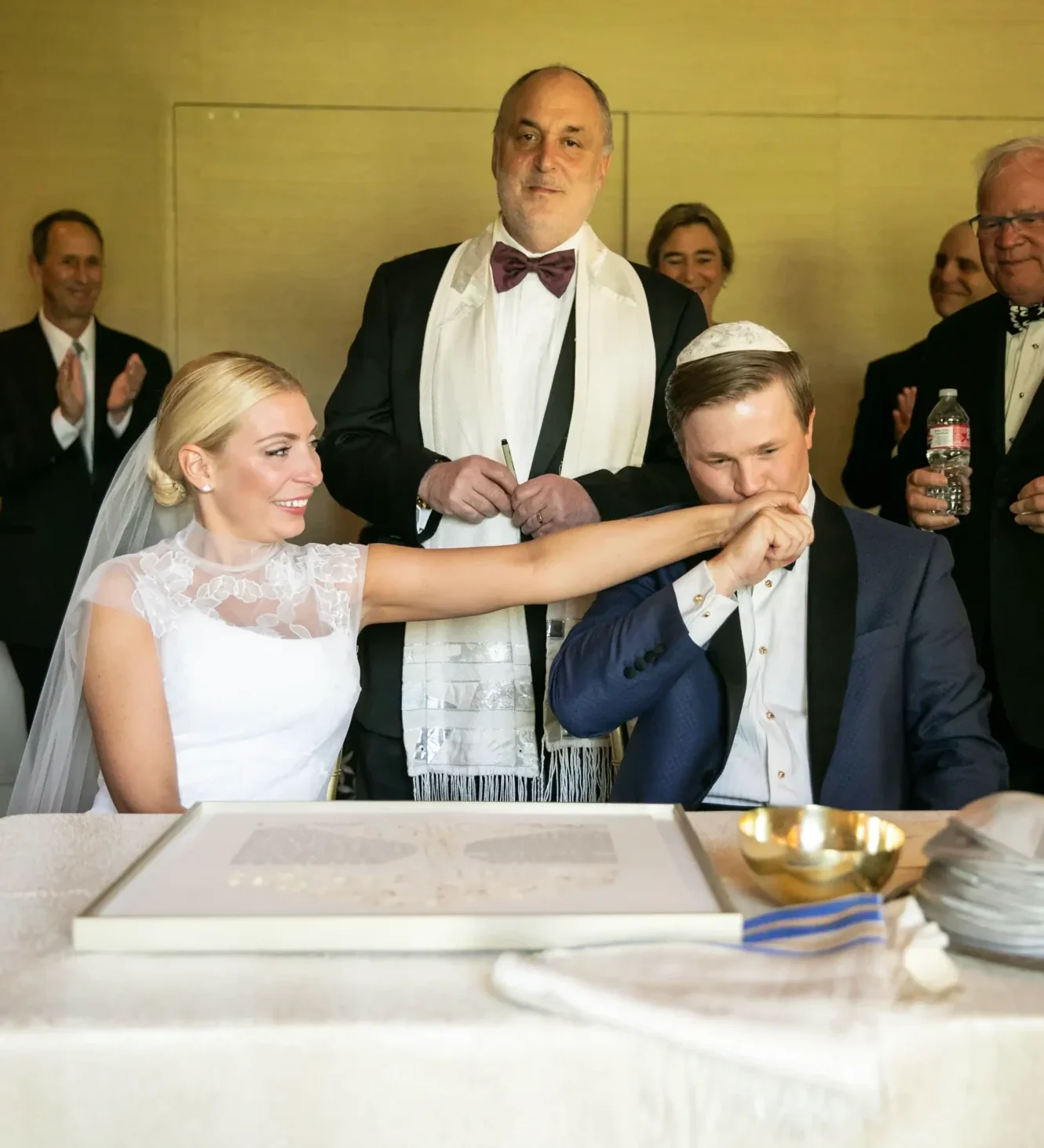
The Union: A Lifelong Commitment in Orthodox Jewish Weddings
In conclusion, Jewish wedding traditions are deeply meaningful, especially within Orthodox Jewish weddings. These ceremonies celebrate the union of two individuals committed to building a strong, loving, and faith-filled life together. With the Rabbi’s guidance, the ceremony adheres to Jewish laws and customs, ensuring God blesses the union.
Orthodox Jewish weddings are more than just rituals; they embody the essence of faith and the sacred bond of marriage.
Refer to Riviera Kosher for more info.
Photography by: John Cain, Rebecca Yale
Wedding images provided + events planned by: Julian Leaver Events, Emily Coyne Events

